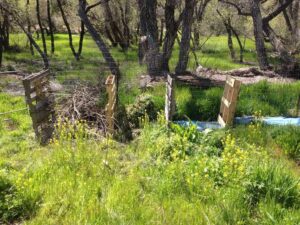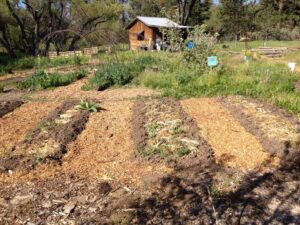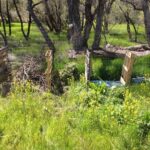by Leora Cockrell – Camp Tawonga – San Francisco, CA
This week’s Parsha, Emor, discusses priests, purity, prioritization and perfection. The specifics of which are either largely outdated (I haven’t recently checked to make sure my livestock’s legs match before sacrificing them, have you?) or offensive (judging people’s worthiness based on their bodies). But as a fellow F ellow taught me, sometimes you can read the Torah like an arrow…where is the message trying to take us given the context of the world it was written in?
As the Jews wandered the desert, wrestling with their new identities as free people, they could have felt caught between the “world was their oyster” sensation and “too many choices are overwhelming” paralysis. Learning to live a different rhythm of life traveling in the desert, getting along with your fellow travelers (some of whom had just been your enslavers), and finding what was more meaningful to them than the comforts of what was known was a big task. And understandably, a few rules, regulations, and rituals could have done a lot to smooth over tensions and build a collective sense of purpose.
I have made a journey to the unknown wilds myself, recently. After spending a month and a half in the city office in San Francisco, I moved up to Camp Tawonga, eight miles outside of Yosemite, to start the farm and garden for summer programming. The garden is wild, the garden is beautiful, the garden is popp’n! This was an especially wet year (phew! Cali drought is officially declared over), which means everything is green, lush, and in charge.
My first day in the garden felt like this…Wow, this is so cool, I can prune this, and train that, and weed here, and mulch there, and organize this, and plant that. I’m never going to be bored, this is amazing, I love my job!
My second day felt like this…OMG-d, there is soooooo much to do, how do I decide where to start, what to prioritize, what to let go of, and when to have fun?!?

It took me almost two weeks, but I was finally able to write my supervisor and say, “I’m ready to admit, I’m overwhelmed by my expectations for myself. Can you help me set realistic ones?” The moment that helped me realize this was speaking with our garden consultant. He said managing an educational garden can look easy and like a ton of low-key fun (who doesn’t love playing in the dirt?!?), which it often is, but there are also a lot of behind the scenes daily decisions and actions that I am responsible for that can add up.
Sometimes it can be hard to set limits and priorities and build rules, regulations and rituals around them to make sure we uphold them. Sometimes our structures become outdated and we need to amend them, but at their core, they help us focus on our purpose, stay inspired, and help us acknowledge the progress we’ve made.

___
Leora’s love of food, farming and nature began in high school when she started a school garden, and soon after, a small market garden on her parent’s land in the Sierra Nevada Foothills in rural Northern California. Leora was has been both a nature camp counselor in her home town and a camper at Jewish summer camps in wilderness settings. Leora has a bachelor’s degree in Sustainable Agriculture & Food Systems and a minor in Women & Gender Studies from UC Davis. During college, Leora directed both a community garden and the Whole Earth Festival and lived in cooperative housing. Leora has worked in organic farmer education, goat farmsteading, garden-to-table food service, and as a medical assistant at her childhood Jewish camp. Leora recently received her Permaculture Design Certificate through an Earth Activist Training course and is excited to use her new knowledge and experience as a JOFEE Fellow. When her hands aren’t covered in dirt, Leora is a photographer, writer, ceramic artist, hiker, biker, avid reader, fabric artist, cook, traveller and has a secret love of interior design. Leora’s guiding passion is to reunite diasporic people with their traditional cultures and reconnect them with land and community. She is thrilled to be able to do this work through a JOFEE Fellowship at Camp Tawonga.
___
Editor’s Note: Welcome to D’varim HaMakom: The JOFEE Fellows Blog! Most weeks throughout the year, you’ll be hearing from the JOFEE Fellows: reflections on their experiences, successful programs they’ve planned and implemented, gleanings from the field, and connections to the weekly Torah portion and what they’ve learned from their experiences with place in their host communities for the year. Views expressed are the author’s and do not necessarily represent Hazon. Be sure to check back weekly!
